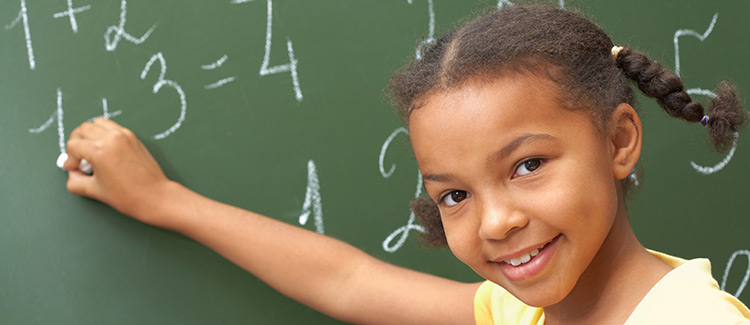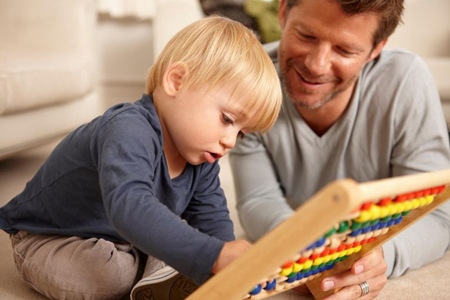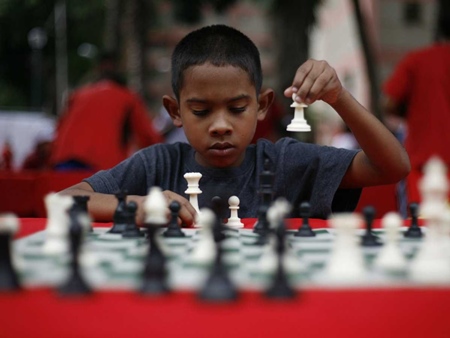
Make Maths a Friend of Your Child

The right attitude is of paramount importance in maths education.
If you want your child to be good at mathematics, never allow statements of this kind to cross your lips:
“I am not a maths person...” “I am bad at maths...” “I just do not have the brain for maths...”
More likely than not, the child will pick up your negative vibes and go on believing that maths is a scary bogeyman, something to be endured under duress for a while, dropped as soon as possible and forgotten about.
But we cannot forget about maths. We need maths in our everyday lives: when we shop, when we plan our personal finances, when we adjust a recipe, and so on. Besides, many in-demand careers, such as engineering, high technology, and finance require above-average maths skills. Even non-maths career paths favour candidates with analytic and reasoning skills, which are developed through training in maths.
Things being as they are, resolve to give your child the gift of maths. It is of crucial importance to start this early in life. Just as you read to your children every night, teach the little ones mathematics on a daily basis.
Experts say that the secret to a successful math education is to make it fun, so that children do not even realise they are learning. Remember that maths is not only about numbers, but also about shapes, patterns, sequences, comparisons, spatial relationships, and so on.
Everyday life presents many opportunities for maths training. For example, you can encourage your child to read and compare price tags in a shop; to measure ingredients for a cooking recipe; and to sort the laundry.
Toys can help you greatly in fostering a positive attitude towards maths. Check the bobshop maths and numeracy educational toys section for all-time favourites as well as the latest toys to hit the market, taking care to choose the ones that are suitable for your child’s age. To help you select, here is a brief overview of only a few toys and games that have been praised for their positive influence in developing maths skills.
 Lego sets and building blocks help children conceptualise large, complex abstractions from small basic parts. These toys come in a variety of sizes and sets and their versatility makes them suitable for all ages.
Lego sets and building blocks help children conceptualise large, complex abstractions from small basic parts. These toys come in a variety of sizes and sets and their versatility makes them suitable for all ages.
Abacus is a calculating tool that was used long before the adoption of written numeral systems. Abacus is also one of the best maths toys around. Even the tiniest fingers love sliding colourful beads back and forth along the wire. An abacus teaches children addition, subtraction, multiplication and division and helps develop problem-solving skills.
Jigsaw puzzles encourage the development of spatial skills, teaching children to rotate and translate shapes. Solving jigsaw puzzles also improves problem-solving skills, strategic thinking and logical reasoning.
Chutes and ladders introduces children to the numbers 1 to 100. The players need to be able to count and do basic additions. According to one study, this board game may improve math skills in preschoolers.
Set card game gives the players a real mental workout, because they have to keep track of permutations, combinations and probabilities. The deck has 81 cards that vary in four features: number (one, two, or three); symbol (diamond, squiggle, or oval); shading (solid, striped, or open); and colour (red, green, or purple).
Chess is a school subject in some countries, because many believe that this ancient game can improve mathematical skills, as well as general academic performance of pupils.
Even if your child does not grow up to be a mathematician, the thinking skills that develop through maths training will prove invaluable throughout life. As an additional bonus, you will also reap the benefits as your child progresses to more demanding maths games, because your brain is like any other muscle: the more you use it, the better it performs.